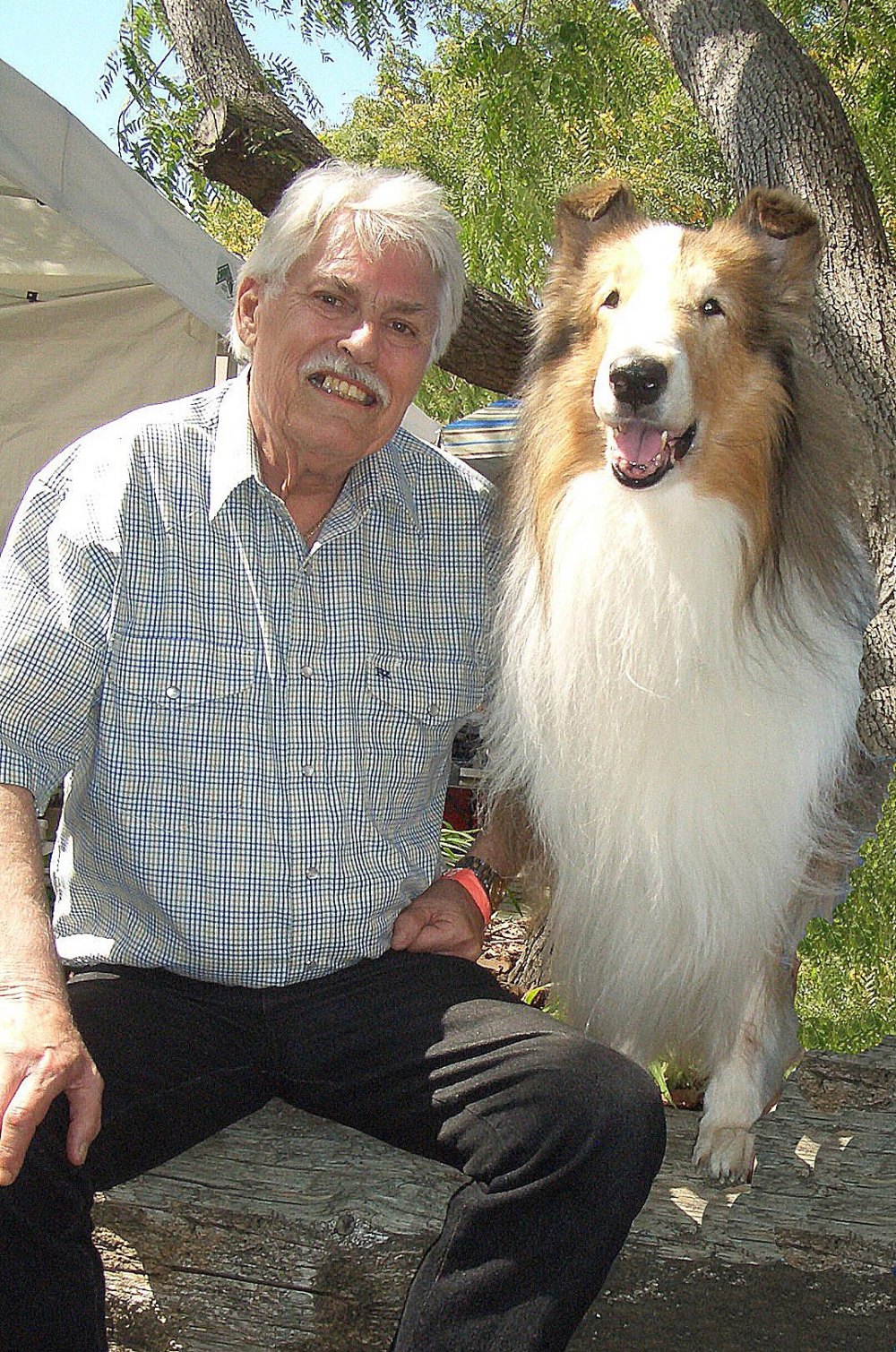Bob and (Howard) Lassie VIII Leslie Rugg
Bob Weatherwax, who was an icon of Hollywood’s canine world, died on Thursday, August 15, Us Weekly can exclusively confirm. He was 83.
As the son of Rudd Weatherwax — who was the original owner and trainer of Lassie — Bob spent nearly his whole life in the entertainment dog training business.
From a young age, Bob was by his father’s side as he assisted with dogs at Rudd’s kennels. In addition, he was often called on to assist in training while Lassie or another Hollywood dog learned a routine.
Bob and his sister JoAnne were the only children who could honestly say that their family pet was the real Lassie. In fact, Pal — the dog who made movie history by portraying Lassie in seven MGM films and starred in the pilot of the Lassie TV series — was born one year before Bob’s birth.
For a brief time, Bob served his country in the United States Army. When he returned home to California, however, Bob decided to follow in his father’s footsteps and officially become a Hollywood dog trainer.
After learning his father’s craft, Bob became an accomplished trainer and established Weatherwax Trained Dogs as his brand. Throughout his career, Bob worked with several famous dogs including Asta, Toto and Old Yeller.

Bob and puppy (Laddie) Lassie IX Leslie Rugg
On his Facebook account, Bob would often receive rave reviews for his gift of bonding with animals and teaching them new skills and tricks.
“He is not condescending. He is not pushy. He uses a reward-based training, which I liked,” one dog owner wrote in a review posted on Bob’s Facebook page in February. “He taught [my dog] to be an obedient dog and gave me the tools to be able to control him. I am very happy with the outcome and I totally recommend him.”

Lassie Silver Screen Collection/Hulton Archive/Getty Images
Before his death, Bob enjoyed spending time with his last collie, who was a grandson of the last Weatherwax-trained Lassie.
As for what made Bob so good at his job, those closest to the trainer believe it was his ability to form an authentic relationship with the dogs he worked with.
“It was the eye-to-eye, heart-to-heart building of trust,” Bob’s team said in a statement to Us. “It was translating the immense potential of a species similar to us but different enough that what we shared could be captured in the raising of a paw, lowering of a head, crawling on the ground, swimming against treacherous currents, leaping out of windows into the arms of the adult or child who loved the dog and needed the dog in that instant.”
The statement continued, “It was Bob’s magic to be able to connect through voice, eye, gesture, a simple nudge, a raising of arms. The dogs always knew what was meant, and audiences reaped the rewards.”
Reporting by Andrea Simpson


